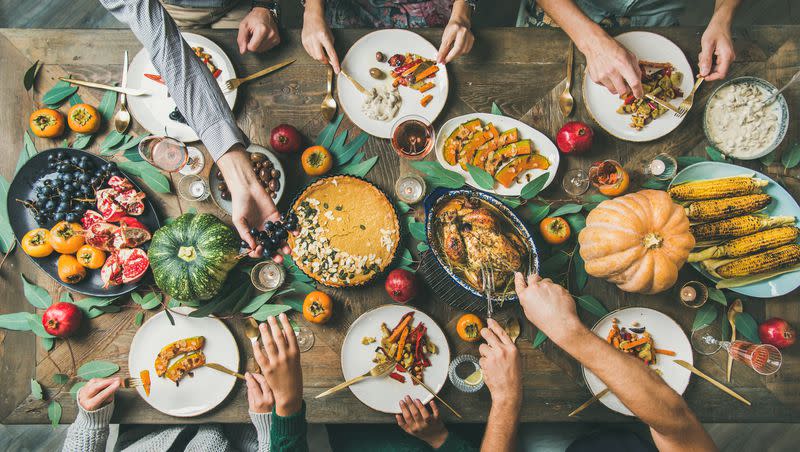How to avoid overeating this holiday season

As much as the holidays are about spending time making memories with family and friends, a separate celebration needs to be had for the food alone.
There’s apple pie, stuffing and smoked turkey, to name a few classics. Everyone has a favorite Thanksgiving dish and because holiday dishes generally only come around for two months out of the year, it may feel like you need to binge in order to get your fill.
You can still enjoy your picturesque Thanksgiving meal without stuffing your face with your mom’s famous sweet potato casserole. Here are few tips to avoid overeating this holiday season:
1. Don’t skip meals
If you thought you’d skip breakfast on Thanksgiving Day to save your calories for your holiday feast later in the day, think again. Skipping meals can lead to overeating later.
“Some people also tend to think that if they skip breakfast and lunch, they will be able to indulge more at holiday dinners without exceeding their calorie limit for the day,” said Haley Robinson, a Piedmont clinical dietitian, per Piedmont Healthcare.
Robinson added, “When you skip a meal or go a long time without eating, your body goes into survival mode. This causes your cells and body to crave food which causes you to eat a lot.”
Eating regular meals during the day helps your body to maintain a stable level of hunger.
2. Savor your food
It takes time for your brain to realize you’re full, up to 20 minutes, in fact.
“It takes approximately 20 minutes from the time you start eating for your brain to send out signals of fullness,” per WebMD. “Leisurely eating allows ample time to trigger the signal from your brain that you are full. And feeling full translates into eating less.”
Chew slowly and savor each bite of that Thanksgiving meal you’ve been dreaming of since you cleaned your plate last year.
If you want to get super technical with it, Intenstinal Labs encouraged people, depending on the food, to chew it around 32 times before swallowing.
Related
3. Bulk up on fruits and vegetables
Fruits and vegetables are high in fiber and will help you feel fuller faster.
“Aim to cover half of your plate with colorful, festive fruits and vegetables,” the Mayo Clinic advised. “This will increase the nutritional value of your meal, help you feel full quickly and decrease the number of calories you consume.”
4. Stay hydrated
Sometimes thirst can be confused with hunger, so it’s important to drink plenty of water throughout the day.
Psycom said it’s beneficial to to drink water continuously throughout the day. “Some people will drink a glass or a bottle of water before attending a holiday get together, and that is a good thing to do.”
The article added, “When you arrive at the party, have another glass or bottle of water before you eat. That will help combat the ‘I am so hungry and must eat everything in sight’ syndrome that happens to most people around the holidays.”
5. Be in tune with your body
Eat when you’re hungry and stop when you’re satisfied, not when you’re uncomfortably full.
Anytime Fitness recommended these four steps to being mindful of your hunger:
Take a moment: After you’ve emptied your plate, take a minute to see if you need seconds or just need a rest. Before getting seconds, sit with yourself and listen to what your body needs.
Ask yourself: What type of nourishment is your body craving? Does it desire something rich and hearty, craving a bit of salt or perhaps something refreshing? Evaluate the level of your body’s hunger.
Slow down: Consume your meal with deliberation and attentiveness. Allow yourself to relish and appreciate every mouthful, and give your body the opportunity to thoroughly digest your food.
Check in: Consider whether the meal met your expectations and if it fulfilled your needs for fullness and contentment.
